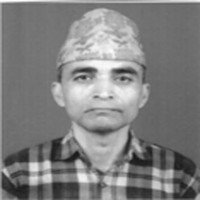Need Of Reforming Bureaucracy
Khilendra Basnyat
The government machinery has touched almost every sector of life in Nepal. Overtime the size of the civil service has increased manifold compared to its initial days in 1956. Despite repeated efforts to modernise the old system, our public administration system is a blend of both traditionalism and modernity. Past experiences have shown that several government programmes could not yield desired benefits to the people on account of poor implementation aspect.
Organised groups, associations and even institutions have been involved in the acts of open defiance with impunity of the country's rules and regulations, challenging the authority of the elected government. The feeling of ‘our man’ rather than experienced and efficient persons in the concerned sectors seems to have developed among the political decision-makers. Consequently, the utilisation of the experience and talent of civil servants toward active party politics is inconsistent with the rule of civil servants in our present political system of governance.
Restructuring of civil services
Since the bureaucracy is the vehicle to implement the decision and programmes of the government, it has emphasised administrative and institutional reforms to render people better and efficient services. However, the significant role of the government in addition to its regulatory functions still remains. In fact, our bureaucracy is overstaffed because of the tendency of the political officials to create new posts to accommodate their friends and relatives. Actually, the restructuring exercising of/for civil service is essential to make it efficient and effective.
After the restoration of democracy, politicisation has led an adverse impact on the administration system of our country. For example, the trend of appointing political figures to head the public corporations caused an unfair impact in the minds of the officials of the respective corporations. In the past, leadership in these corporations kept changing with the change of government.
The present low performance of corporations is attributable to factors such as conflicting corporate culture characterised by corrupt, unethical behaviours and indifferent attitudes towards both services and productivity improvement. It has been observed that chief executive is responsible for the low corporate performance. The government should not think that the performance of public corporations can be revamped simply by changing the chief executive or chairman.
However, it should comprehend well that many managers of these corporations have reached senior positions by completing minimum years of service for promotion and lack the type of vision, professional competency, dynamism, creativity and feeling of ownership.
As a citizen of an open society with a multiparty system, a civil servant can cast his/her vote in the election. However, as a civil servant paid from the public coffer, his/her main duty is to provide service to the public without any discrimination. Undoubtedly, the civil servants also played a vital role in the popular movement of 1990.
After the restoration of democracy, they are mainly divided into two groups such as the Civil Service Organisation and the Civil .Service Association which are both the sympathisers of the main political parties. Although the government has declared it illegal for officers to become members of either of the associations, this has not proved to be effective because politicians protect, encourage and use them to meet their demands.
Until now a number of commissions were formed by the government to bring about administrative reforms. However, the goal of development in the administrative sector is still a problem. Administration, which is also a natural corollary of the doctrine of development, has been acclaimed as an ideal of the present age. Reformers of administration are never tired of proclaiming their faith in democracy. However, the emphasis of the managerial turn in public administration is likely to be away from widening the area of democratic participation.
Untidy political negotiations are observed as a possible source of corruption and a diversion of economic rationally. To streamline public administration, it is necessary to promote values and techniques of corporate management, the profitability criterion, cost-benefit analysis and economic rationally. In reality, the emphasis is not so much on achieving an egalitarian society but on developing individual capacities.
Criticism
Time and again, one encounters with criticism that it is possible to carry on administration by keeping it always within the purview of law, more so in case of developing and least developed countries determined to make a steady progress. However, in Nepal, what is desirable is to have a civil service, which is neutral to party politics but committed to government policies, democratic values and the norms inherent in the present constitution of our country. If this were not the case, the problem of natural confidence between the government and civil servants would always remain. Therefore, the concerned authorities should pay attention to this fact as soon as possible.
(Basnyat is a freelance writer)
Recent News

Do not make expressions casting dout on election: EC
14 Apr, 2022
CM Bhatta says may New Year 2079 BS inspire positive thinking
14 Apr, 2022
Three new cases, 44 recoveries in 24 hours
14 Apr, 2022
689 climbers of 84 teams so far acquire permits for climbing various peaks this spring season
14 Apr, 2022
How the rising cost of living crisis is impacting Nepal
14 Apr, 2022
US military confirms an interstellar meteor collided with Earth
14 Apr, 2022
Valneva Covid vaccine approved for use in UK
14 Apr, 2022
Chair Prachanda highlights need of unity among Maoist, Communist forces
14 Apr, 2022
Ranbir Kapoor and Alia Bhatt: Bollywood toasts star couple on wedding
14 Apr, 2022
President Bhandari confers decorations (Photo Feature)
14 Apr, 2022











